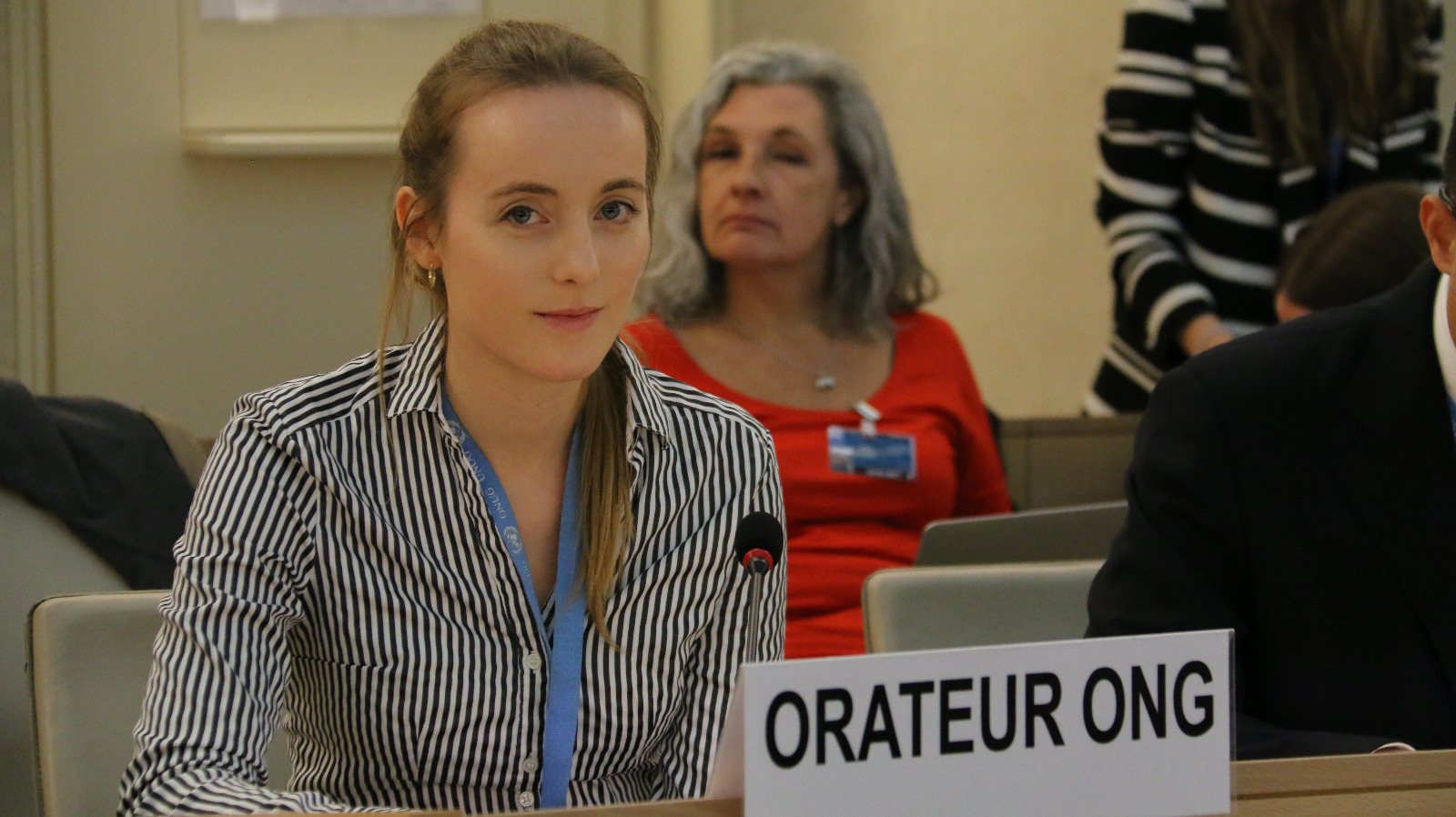On 6 March 2017, ADHRB’s Amanda Milani delivered an oral intervention at the 34th session of the Human Rights Council. She participated in the Item 3 Interactive Dialogue with the Special Rapporteur on Cultural Rights and the Special Rapporteur on Counterterrorism, delivering an oral intervention addressing the violations of cultural rights in the Gulf and recent measures taken by the Bahraini government to further suppress rights in the country. Please continue reading for full remarks or click here to download a PDF.
Mr. President,
IDO, Americans for Democracy & Human Rights in Bahrain and the Bahrain Institute for Rights and Democracy welcome the reports of the Special Rapporteurs.
We share the opinion of Rapporteur Bennoune on the importance of protecting cultural rights to combat fundamentalism and extremism. We unfortunately find that in our work in the Gulf region, governments more often perpetuate violations of cultural and other rights under the pretext of combating extremism.
For example, in Bahrain, in 2011 the government crushed the peaceful protest movement centered around the Pearl Roundabout. The Bahraini government then demolished the Pearl monument in the name of national security, and has attempted to erase all references to the icon from public life, including by re-writing textbooks and removing all coins featuring its image from circulation. Similar to the persecution of Ashraf Fayedh, the Palestinian poet sentenced to death in Saudi Arabia whose case was highlighted in your report; Bahrain has also convicted many artists and writers on charges relating to their right to take part and participate in cultural life.
We are likewise concerned by measures taken to combat terrorism in many states, like Bahrain, which do not meet even the minimum standards of human rights. We highlight Rapporteur Emmerson’s remarks in his report, urging States to act proportionally and with due regard for human rights obligations.
In this regard, we are deeply concerned by the recent restoration of arrest powers to the National Security Agency in cases concerning terror crimes in Bahrain. Yet, despite this seemingly specific mandate, in Bahrain this mandate is much more wide-reaching, as Bahrain’s counter-terror laws include widespread restrictions on free expression, dissenting opinions, and the right to assembly. Bahrain’s security forces have already used these laws to target of civil society and political dissidents and have demonstrated the clear dangers of this expansive legal framework.
In light of these concerning developments, we wish to ask both rapporteurs: “What legal and institutional accountability and oversight mechanisms should be in place to prevent the violation of cultural rights and other human rights under the pretext of counterterrorism?”
Thank you





